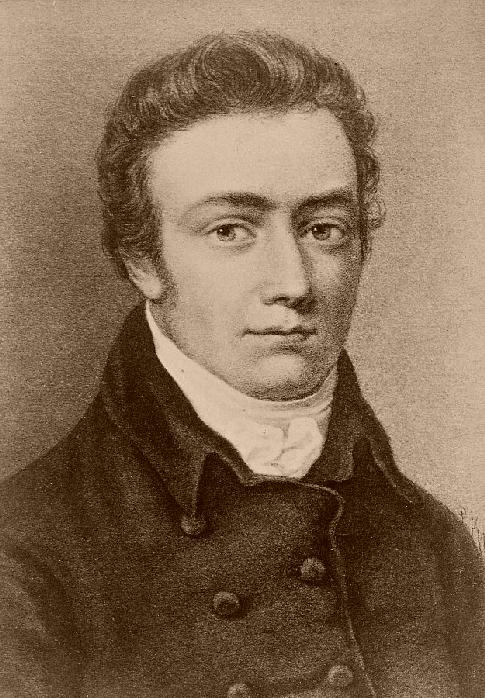Samuel Taylor Coleridge frasi celebri
Origine: Da La ballata del vecchio marinaio.
Samuel Taylor Coleridge Frasi e Citazioni
Origine: Da Sulla poesia o l'arte.
La leggenda del vecchio marinaro, Alessandro Ceni
La leggenda del vecchio marinaro, Alessandro Ceni
La leggenda del vecchio marinaro, Alessandro Ceni
“Chi si vanta di aver conquistato | una moltitudine di amici non ne ha mai avuto uno.”
Origine: Da Pondere non numero.
Origine: Citato in Guido Almansi, Il filosofo portatile, TEA, Milano, 1991.
Origine: Da una lettera del 1798 a George H. Coleridge; citato in Andrew Weil e Winifred Rosen, Dal cioccolato alla morfina. Tutto quello che dovete sapere sulle sostanze che alterano la mente, traduzione di Fabio Bernabei, Arcana, Roma, 2007, p. 107.
“La più generale definizione della bellezza […] Molteplicità nell'Unità.”
Origine: Da On the Principles of Genial Criticism.
“L'esperienza ci informa che la prima difesa degli spiriti deboli è recriminare.”
Origine: da Biographia literaria, 1817.
“Quella volontaria sospensione dell'incredulità sul momento, che costituisce la fede poetica.”
Origine: Da Biographia literaria, 1817 – cap. XIV.
Origine: Da Poesie e prose, Torino, 1931, p. 124; citato in Aldo D'Asdia e Pietro Mazzamuto, Letteratura italiana, Pagine di documentazione critica, Felice Le Monnier, Firenze, 1973<sup>9</sup>, p. 9.
Samuel Taylor Coleridge: Frasi in inglese
i.e., by super-inducing on the animal instinct the principle of self-consciousness
Aids to Reflection (1873), footnote to Aphorism 106 part 13
“Intense study of the Bible will keep any writer from being vulgar, in point of style.”
Specimens of the table talk of the late Samuel Taylor Coleridge, June 14, 1830, (1835) p. 177
“Poor little foal of an oppressèd race!
I love the languid patience of thy face.”
"To a Young Ass", li. 1 (1794)
"The Statesman's Manual" (1816)
Letter to Robert Southey (29 December 1794).
Letters
“The Earth with its scarred face is the symbol of the Past; the Air and Heaven, of Futurity.”
2 June 1824
Table Talk (1821–1834)
12 May 1830
Table Talk (1821–1834)
Letter to Thomas Allsop (30 March 1820)
Letters
Part II
Bartlett's Familiar Quotations, 10th ed. (1919), Christabel
“A charm
For thee, my gentle-hearted Charles, to whom
No sound is dissonant which tells of life.”
This Lime-tree Bower my Prison
Bartlett's Familiar Quotations, 10th ed. (1919)
“My eyes make pictures when they are shut.”
A Day-Dream
Bartlett's Familiar Quotations, 10th ed. (1919)
“It is a flat'ning Thought, that the more we have seen, the less we have to say.”
Letter to James Gillman (9 October 1825)
Letters
Letter to William Sotheby (13 July 1802)
Letters
“Each matin bell, the Baron saith,
Knells us back to a world of death.”
Part II
Bartlett's Familiar Quotations, 10th ed. (1919), Christabel
"Anima Poetæ : From the Unpublished Note-books of Samuel Taylor Coleridge" (1895) edited by Ernest Hartley Coleridge, p. 238
“Her face, oh call it fair, not pale!”
Part II
Bartlett's Familiar Quotations, 10th ed. (1919), Christabel
St. 1
"Hymn in the Vale of Chamouni" (1802)
“A lady richly clad as she,
Beautiful exceedingly.”
Part I
Bartlett's Familiar Quotations, 10th ed. (1919), Christabel
“Experience informs us that the first defence of weak minds is to recriminate.”
Origine: Biographia Literaria (1817), Ch. II
Notebooks, September/early October 1802
Notebooks
France, An Ode. v
Bartlett's Familiar Quotations, 10th ed. (1919)
The Death of Wallenstein, Act v, scene 1
Bartlett's Familiar Quotations, 10th ed. (1919)
“The book of Job is pure Arab poetry of the highest and most antique cast.”
9 May 1830
Table Talk (1821–1834)
Reported in Josiah Hotchkiss Gilbert, Dictionary of Burning Words of Brilliant Writers (1895), p. 235, and various other sources beginning no earlier than 1880; actually an elaboration and modification of a quote by D.W. Clark, The Mount of Blessing (1854), p. 56: "It shall be my wealth in poverty, my joy in sorrow, and its promised rewards shall cheer me in all trials, and sustain me in all sufferings".
Misattributed
“A mother is a mother still,
The holiest thing alive.”
The Three Graves
Bartlett's Familiar Quotations, 10th ed. (1919)
